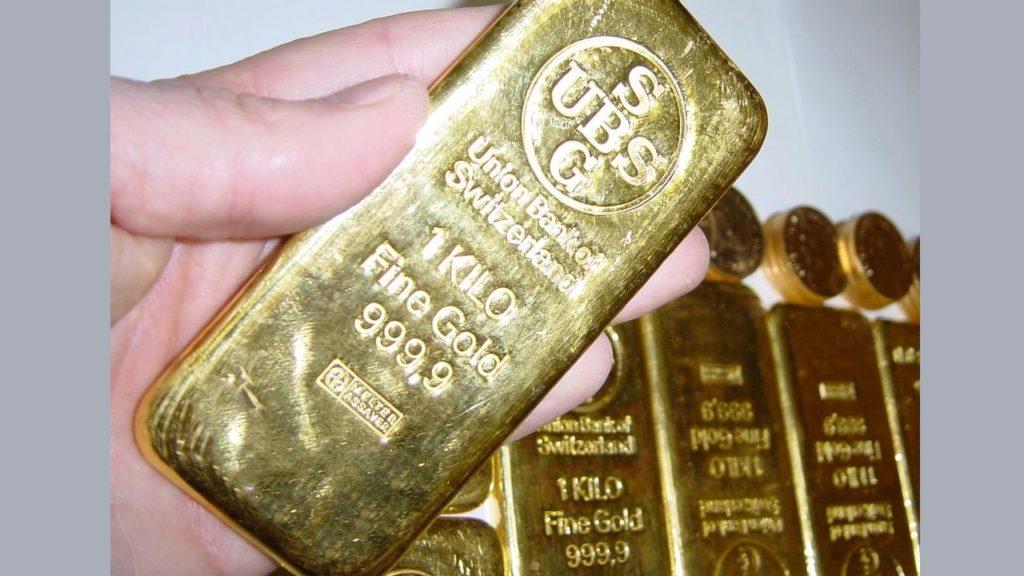Feature your business, services, products, events & news. Submit Website.
Breaking Top Featured Content:
Confessions Of A Reluctant Gold Investor

Tyler Durden
Mon, 08/24/2020 – 16:25
Authored by Michael Maharrey via SchiffGold.com,
Vitaliy Katsenelson serves as the chief investment officer at Investment Management Associates in Denver. In an article he wrote for MarketWatch, he admits his company has resisted buying gold in the past.
But the company is buying gold now.
Why?
In a nutshell – currency debasement.
Gold hedges our clients against two scenarios: a weaker US dollar and the debasement of all currencies (the dollar declines and so do other currencies). Dollar outflows will be looking for homes. Some money will flow into euros, British pounds, and Swiss francs, and some into gold — an incorruptible asset class (central banks and politicians cannot create more gold).”
Katsenelson wrote that in the past, his rationale for not owning gold was that he’d rather own “good companies.” This is very similar to the strategy Warren Buffet has always advised to avoid inflation, as Peter Schiff explained in a recent podcast.
Warren Buffett has never been advocating that anybody buy a gold stock. In fact, when he’s been asked about gold, he’s kind of dismissed it as a non-producing asset, and he’s always been saying, ‘Look, if you’re worried about inflation, just buy equities, buy businesses.’ … That’s probably true when the inflation is manageable, when it’s small, maybe a few percent a year. But when you’re about to have massive inflation, a much higher degree of inflation, that’s what I think causes Warren Buffett to decide that now it’s time to hedge the old-fashioned way. I can’t just buy businesses, especially when they’re overpriced. I’ve got to buy gold businesses. I’ve got to get into physical gold.”
Katsenelson said his company will continue to invest in “good companies,” but it will also add gold as “an unloved hedge.”
Meanwhile, the US will have its challenges and will adapt to them. As investors, we will adapt as well — we just like to be early.”
I’m not sure I would call getting into gold now “early.” But I suppose from a mainstream perspective, it might be.
Katsenelson spends the bulk of his column space talking about problems with the dollar. As the reserve currency, the greenback has enjoyed a privileged position. But as Katsenelson put it, being the envy of the world changes your behavior.
You start believing that you are very special for reasons that are not grounded in reality. You start believing that bad things happen only to other people and nations because they are not as special as you. You can do anything you want — borrow and spend as much as you like — and nothing bad will happen to you. This behavior in turn starts to undermine the core reasons why people trusted your country and currency to begin with. This is what is now happening to the US.”
Debt to GDP will likely exceed 120% this year and could even eclipse 130%. It’s easy to blame COVID-19 for the surge in debt. It has certainly exacerbated the problem. But the federal government was on pace for a $1 trillion-plus deficit this year even before the pandemic. As Katenelson put it, “The US has run huge budget deficits in bad times and in good, long before the virus.”
Katsenelson said it’s unlikely the US would outright default on its debt. Instead, it will “honor” its obligations via “massive money printing.”
“Which could bring massive inflation and tank the US dollar (who wants to own a currency that buys less and less?). God help you if you reached for yield and loaded up on long-term bonds (a trade that minted money for the past 30 years). Long-term bonds will be widow-makers in this scenario.”
As a result, Katsenelson says he believes the “strength the dollar has experienced over the past decade will likely fade.”
The dollar’s decline may bring higher prices, higher inflation (we are a net importer), and higher interest rates (the Fed will try to squash interest rates, until it cannot). In my firm’s portfolios we are already partially positioned for this shift by owning foreign stocks — a weaker dollar means foreign company earnings will go up in the US dollar terms. But there is another asset we’re buying — gold.”
Peter Schiff has been talking about this scenario for years. Now even reluctant gold investors are starting to see the writing on the wall.
Continue reading at ZeroHedge.com, Click Here.

